Read the latest research from our department
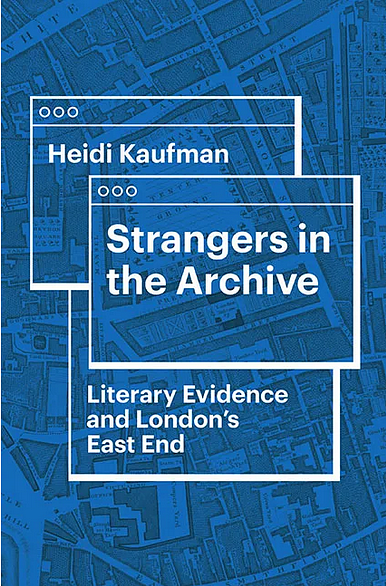
Strangers in the Archive: Literary Evidence and London's East End (University of Virginia Press, 2022)
Heidi Kaufman, Associate Professor of English
Traditionally the scene of some of London’s poorest, most crime-ridden neighborhoods, the East End of London has long been misunderstood as abject and deviant. As a landing place for migrants and newcomers, however, it has also been memorably and colorfully represented in the literature of Victorian authors such as Charles Dickens and Oscar Wilde. In Strangers in the Archive, Heidi Kaufman applies the resources of archives both material and digital to move beyond icon and stereotype to reveal a deeper understanding of East End literature and culture in the Victorian age.
Read the published work in Strangers in the Archive - UVA Press (virginia.edu).
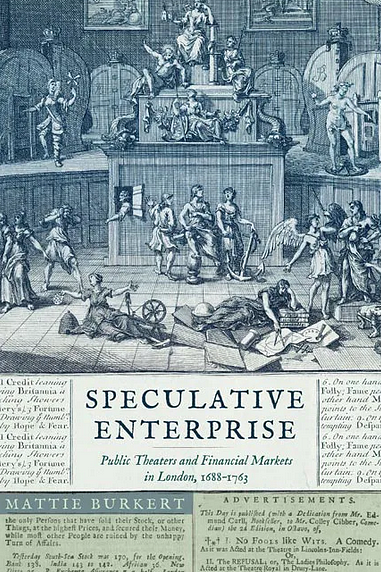
Speculative Enterprise: Public Theaters and Financial Markets in England, 1688-1753 (University of Virginia Press, 2021)
Mattie Burkert, Assistant Professor of English
In the wake of the 1688 revolution, England’s transition to financial capitalism accelerated dramatically. Londoners witnessed the rise of credit-based currencies, securities markets, speculative bubbles, insurance schemes, and lotteries. Many understood these phenomena in terms shaped by their experience with another risky venture at the heart of London life: the public theatre. Speculative Enterprise traces the links these observers drew between the operations of Drury Lane and Exchange Alley, including their hyper commercialism, dependence on collective opinion, and accessibility to people of different classes and genders.
Read the published work in Speculative Enterprise - UVA Press (virginia.edu).
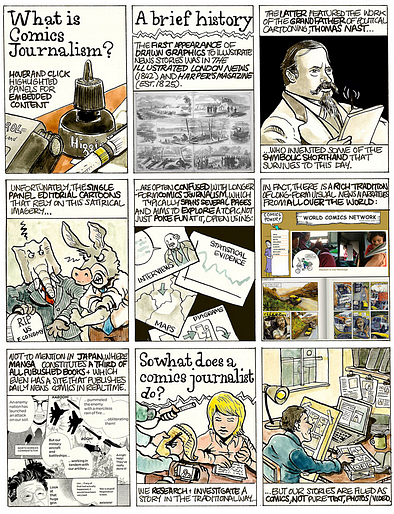
The Art of the News exhibition, Jordan Schnitzer Museum, Fall 2021
Kate Kelp-Stebbins, Assistant Professor of English
The Art of the News was the first major retrospective devoted to Comics Journalism, an increasingly influential genre of visual narrative. Comics journalists tell stories that urgently need to be told—in an immediate and accessible way. As such, the best works of comics journalism stand as compelling examples of how the news might be reimagined as an artistic practice. The exhibition spotlighted original artwork and artifacts representing over thirty years of reportage by New York Times best-selling author-artist Joe Sacco, a foundational figure in the field—and a graduate of the UO. Accompanying Sacco’s groundbreaking work were key pieces from an international group of artists who have developed comics journalism and are pushing the genre in new directions, including Gerardo Alba, Dan Archer, Thi Bui, Tracy Chahwan, Jesús Cossio, Sarah Glidden, Omar Khouri, Victoria Lomasko, Sarah Mirk, Ben Passmore, Yazan al-Saadi, and Andy Warner.
See the exhibit in The Art of the News: Comics in Journalism I Jordan Schnitzer Museum of Art (uoregon.edu).
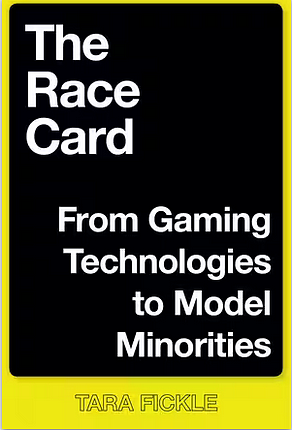
The Race Card: From Gaming Technologies to Model Minorities (New York University Press, 2019)
Tara Fickle, Associate Professor of English
As Pokémon Go reshaped our neighborhood geographies and the human flows of our cities, mapping the virtual onto lived realities, so too has gaming and game theory played a role in our contemporary understanding of race and racial formation in the United States. From the Chinese Exclusion Act and Japanese American internment to the model minority myth and the globalization of Asian labor, Tara Fickle shows how games and game theory shaped fictions of race upon which the nation relies. Drawing from a wide range of literary and critical texts, analog and digital games, journalistic accounts, marketing campaigns, and archival material, Fickle illuminates the ways Asian Americans have had to fit the roles, play the game, and follow the rules to be seen as valuable in the US. The book won the Before Columbus Foundation American Book Award.
Read the published work in The Race Card (nyupress.org).
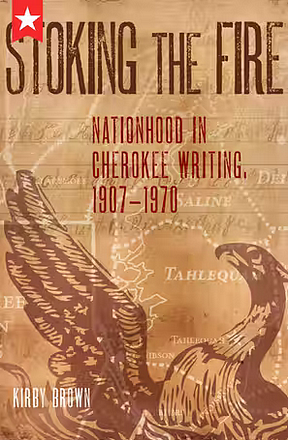
Stoking the Fire: Nationhood in Cherokee Writing, 1907-1970 (University of Oklahoma Press, 2018)
Kirby Brown, Associate Professor of English
The years between Oklahoma statehood in 1907 and the 1971 reemergence of the Cherokee Nation are often seen as an intellectual, political, and literary “dark age” in Cherokee history. In Stoking the Fire, Kirby Brown brings to light a rich array of writing that counters this view. A critical reading of the work of several twentieth-century Cherokee writers, this book reveals the complicated ways their writings reimagined, enacted, and bore witness to Cherokee nationhood in the absence of a functioning Cherokee state. This book won the Thomas J. Lyons Award for best monograph in Western American Literary Studies by the Western Literature Association in 2019, and received Honorable Mention for Studies in Native American Literatures, Cultures, and Languages by the Modern Language Association in 2020.
Read the published work in Stoking the Fire - University of Oklahoma (oupresscom).
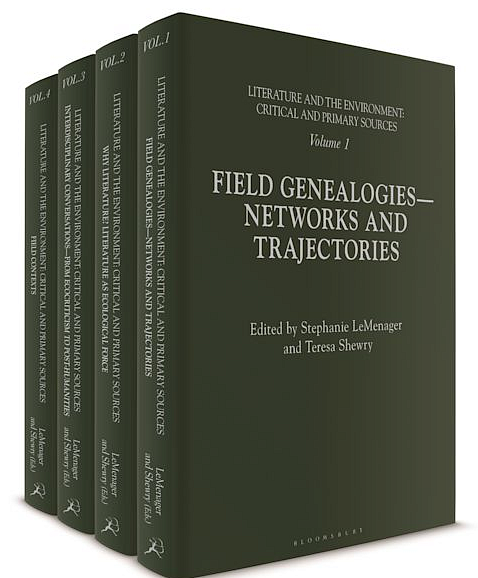
Literature and the Environment: Critical and Primary Sources (Bloomsbury Academic, 2021)
Stephanie LeMenager, Professor of English and Teresa Shewry
Bringing together 100 essential critical articles across 4 volumes, Literature and the Environment: Critical and Primary Sources is a comprehensive collection of the most important academic writings on ecocriticism and literature’s engagement with environmental crisis. With texts by key scholars, creative writers and activists, the articles in these four volumes follow the development and history of environmental criticism, as well as interdisciplinary conversations with contemporary philosophy and media studies.
Read the published work in Literature and the Environment: Critical and Primary Sources, Stephanie LeMenager, Bloomsbury Academic.
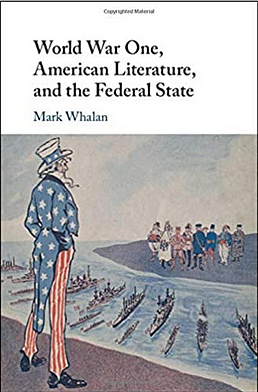
World War One, American Literature, and the Federal State (Cambridge University Press, 2018)
Mark Whalan, Professor of English
In this book, Mark Whalan argues that World War One's major impact on US culture was not the experience of combat trauma, but rather the effects of the expanded federal state bequeathed by US mobilization. Writers bristled at the state's new intrusions and coercions but were also intrigued by its creation of new social ties and political identities. This excitement informed early American modernism, whose literary experiments often engaged the political innovations of the Progressive state at war. Writers such as Wallace Stevens, John Dos Passos, Willa Cather, Zane Grey, and Edith Wharton were fascinated by wartime discussions over the nature of US citizenship, and also crafted new forms of writing that could represent a state now so complex it seemed to defy representation at all. And many looked to ordinary activities transformed by the war - such as sending mail, receiving healthcare, or driving a car - to explore the state's everyday presence in American lives.
Read the published work in World War One, American Literature, and the Federal State (cambridge.org).

